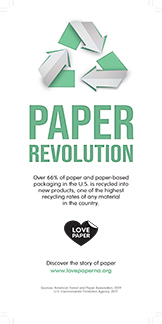As people across the globe become more aware of environmental issues, the desire for green products and services is growing. But with all the environmentally friendly claims made around products these days, how can consumers know which claims are accurate and which fall into the category of greenwashing?
According to the Ecolabel Index, there are currently 456 ecolabels in the marketplace, each claiming some sort of sustainability-related benefit associated with a product or service. Consumers are enticed by claims that products are eco-friendly, organic, natural and green, and the number of products purporting these claims is increasing.
With eco credentials proliferating and corporations looking to capitalize on sustainability, the practice of greenwashing -- making exaggerated, unsubstantiated or outright false claims to convince consumers a product is environmentally friendly -- is becoming more common. The phenomenon gets its name through a coupling of concepts: environmental soundness (i.e., green) and the misrepresentation of ideas (whitewashing).
In response many countries are enacting legislation to create and enforce regulatory standards that will help keep greenwashing in check. That's led to a string of high-profile lawsuits that have put some of today's biggest brands squarely in the greenwashing bullseye.
Anti-Greenwashing Campaign Spreads Awareness
Two Sides North America, which is part of a global nonprofit network of more than 600 companies representing the forestry, pulp, paper and related industries, is committed to telling the sustainability story of print, paper and paper-based packaging. That extends to debunking common myths about paper and confronting greenwashing practices, such as the "go green, go paperless" messaging used by many companies, including banks, utilities and others in the service industry.
In a recent "Two Minutes with Two Sides" video, Two Sides North America executive director Jules Van Sant explains, "Many of the claims about the sustainability of paper, or that you are saving trees by going paperless, are just not substantiated by fact. Consumers are being forced to go paperless under the guise of sustainability when it is more likely that companies are doing it to save on costs."
Companies that participate in greenwashing contribute to job loss in the paper, printing and mailing sector and unfairly influence consumers to switch from paper bills and statements to electronic communication using messaging such as:
- "Go paperless, save trees!"
- "Sign up for paperless billing and help the environment."
- "Help us lower our carbon footprint and yours - sign up for paperless billing."
The truth is 68 percent of paper is recycled in the United States, and it can be recycled as many as seven times before it can no longer be used to make paper. The pulp and paper sector only accounts for 1 percent of total greenhouse gas emissions in the United States, making it one of the lowest industrial emitters of greenhouse gasses. And electronic communication has a vast and growing environmental footprint. (Learn more by reading Two Sides North America's greenwashing fact sheet.)
The organization's Anti-Greenwashing Campaign not only spreads awareness of the practice of greenwashing but also shares facts about the sustainability of paper and paper-based products, studies consumer preferences and invites consumers to report examples of greenwashing.
Domtar Advocates Against Greenwashing
Domtar is proud to be a member of Two Sides North America. Our ongoing partnership with the organization enables us to advocate for consumer choice and to give a fair and fact-based representation of the sustainability of paper products.
As North America's largest integrated producer of uncoated freesheet paper, we have long been focused on sustainable manufacturing. We also have worked to strictly adhere to the Federal Trade Commission's Guides for the Use of Environmental Marketing Claims (also called the FTC Green Guides), which were first released in 1992.
We work with environmental groups and leading forest-certification programs to ensure continuous improvements to and regular assessments of our sustainability practices. And because we have a trusted voice in this space, we routinely communicate with our customers to ensure that they also apply appropriate environmental marketing strategies.
As the trend of environmentally conscious living continues, Domtar will remain an advocate against greenwashing.






















